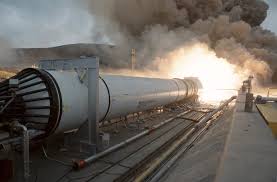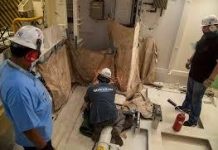
Italian propulsion company Avio is just weeks away from selecting the U.S. state where it will establish a new manufacturing plant expected to create up to 1,500 jobs and help meet rising demand for solid rocket motors.
“We are evaluating several states and are close to completing our due-diligence process,” said retired U.S. Navy Vice Adm. James Syring, now CEO of Avio USA, the firm’s American subsidiary.
Syring, who previously led the U.S. Missile Defense Agency from 2012 to 2017, noted that Avio is comparing different incentive packages offered by the finalist states. He confirmed that the company has narrowed the options to three locations and intends to finalize its choice “within the next few weeks,” he told Defense News.
Avio reached an agreement with Raytheon last year to serve as a second-source supplier for the Mk 104 dual-thrust rocket motor, a component used in the Standard Missile. Production will begin at Avio’s facility in Italy before shifting to the forthcoming U.S. site, which is slated to open in 2028.
The company also revealed a new partnership this week with Lockheed Martin to provide second-source support likely tied to Army programs. According to Avio, both Raytheon and Lockheed Martin will receive priority access to portions of the new plant’s output to help meet future demand.
“We’re not exclusively tied to either contractor,” Syring emphasized, adding that Avio aims to build long-term strategic partnerships with both companies.
The U.S. facility is expected to break ground in early 2026. Avio plans to develop a 1,200-acre complex that will eventually employ around 1,500 people and produce up to 2,000 tons of propellant annually. “Our initial production rate will be roughly 700 tons,” Syring said.
Avio’s push into the U.S. market comes amid surging global missile demand and a heavily consolidated American supplier base. “Only two companies—Aerojet under L3 and Northrop Grumman, which acquired ATK—currently manufacture all tactical solid rocket motors in the U.S. With demand climbing so rapidly, the domestic supply chain doesn’t have enough capacity,” Syring explained.
In October, Avio announced a €400 million ($466 million) capital increase, with €320 million earmarked for the American facility. Defense programs currently account for about 20% of Avio’s revenue, but the company expects that share to grow to 60% by 2035, driven by its expanding military portfolio.




